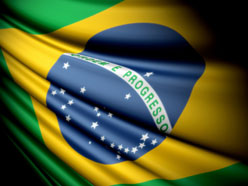
The relevance of the original G7 is fading fast. Not only is China now the world’s second largest economy, but Brazil has reached sixth place in the world.
The South American giant passed the UK in 2011, despite the fact its real GDP growth plummeted to just 2.7%—down from 7.5% in 2010. Brazilian output was roughly $49.2 billion more than the UK, according to some estimates.
Brazilian finance minister Guido Mantega believes that if the global economy had been stronger mid-year, his country could have posted growth of 4%.
Real GDP growth reached 0.3% in the final quarter of 2011, just shy of Barclay Capital’s forecast of 0.4%, with downward revisions to growth over the previous three quarters shaving off some growth potential.
The highlight was the strong rebound in household consumption, which grew 4.5% annualized from a 0.2% drop in the third quarter.
Demand components had some recovery in the final quarter of the year, but fixed investments and government consumption remained at a depressed level.
“The growth slowdown in 2011 was driven by an overall moderation in the demand breakdown components,” notes Guilherme Loureiro, Sao Paulo-based economist at Barclays Capital.
Investment growth slowed from 21.3% in 2010 to just 4.7% in 2011, while private consumption softened from 6.9% growth to 4.1%.
Government spending also moderated to 1.9%, down from 4.2% in 2010.